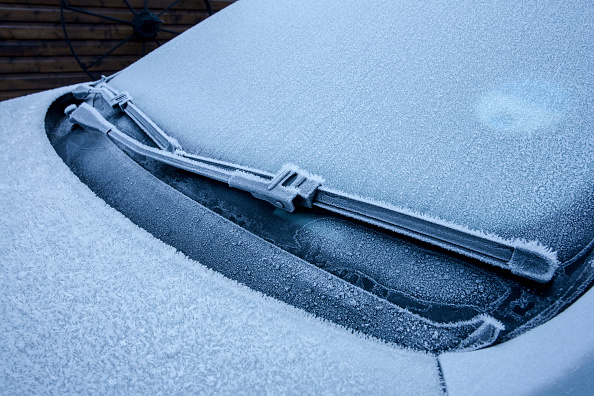NASHVILLE, Tenn. (WKRN) — Just like during extreme heat, some items left behind in your car can become damaged when it’s cold out.
Much of the country has seen recent weather alerts regarding dangerously cold temperatures. And while there are some items to include in your car’s weather survival kit in case you get stranded during dangerous traveling conditions, there are a handful you should avoid putting in your vehicle.
Electronics
Apple warned that leaving devices in cold temperatures can cause them to “change behavior.” In fact, when you leave your phone or any other electronic device in very cold conditions, you risk temporarily shortening the battery or preventing the device from charging.
According to Apple, battery life will return to normal when devices are brought back to “higher ambient temperatures.”
Liquids
If you want to avoid cleaning up a big mess, make sure to remove any bottled liquids from your vehicle before extremely cold temperatures arrive.
When liquids freeze, they expand. During cold snaps, bottled liquids such as water or soda could expand and explode, leaving a potentially sticky mess to clean up.
Pets
Even though hot cars are known to be a threat to animals, veterinarians warn that cold vehicles pose a significant risk as well.
The American Kennel Club (AKC) said it’s dangerous to assume that your pet’s fur will be enough to protect them from extreme cold. If pets are left alone in a cold car for too long, they can develop hypothermia. Left untreated, they could then experience cardiac and respiratory failure, brain damage, coma, and even death, according to the AKC.
Glasses
According to Webeyecare.com, exposing prescription glasses to extreme cold can cause the lenses to expand and contract. The company also said frames are likely to warp in cold weather, especially if they’re plastic.
Damaged and warped frames can reportedly affect how eyes align with lenses, which can lead to headaches and prevent the wearer from seeing as clearly as they would with aligned frames.
Eggs
While eggs can be used for an interesting cold weather experiment, they should not be left in your vehicle after a shopping trip.
The U.S. Department of Agriculture (USDA) said eggs should not be frozen in the shells. If an egg accidentally freezes and the shell cracks, discard it, the USDA says.
Medication
Just as hot temperatures do, cold temperatures can damage medications.
Baystate Health says most medicines should be stored at room temperature between 59 degrees and 77 degrees. Some medicines left in a cold car can freeze, making them unstable. Experts add there is no way to know if frozen medication is still good when it thaws out, so it’s best to get it replaced.
Musical instruments
Leaving instruments in cold vehicles for too long can lead to damage.
According to Yamaha Music USA, wooden instruments can crack in cold temperatures and even change the weight and sound.
Canned goods
Cans freeze in cars during cold temperatures and can present health problems, according to the USDA.
Just like liquids, frozen cans can also swell in the cold, which can cause them to burst. The USDA advises that if the product doesn’t look or smell normal, you should “throw the cans out immediately, wrapping the burst can in plastic and disposing the food where no one, including animals, can get it.”
